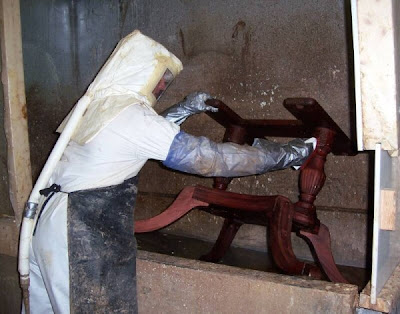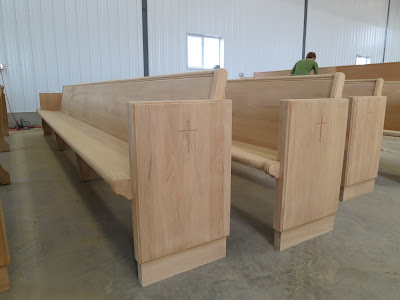
Restoring Sacred Beauty: Mariners Church of Detroit
A Historic Gem Reclaimed
The Mariners Church of Detroit, founded in 1840, is a remarkable example of early American ecclesiastical architecture. Crafted with the precision and care reminiscent of hand-hewn wooden boats, this sacred space is one of the oldest surviving churches in Michigan—and perhaps one of the most underappreciated.
Once a dominant figure on the Detroit skyline, the church’s stature has been visually overshadowed by an unfortunate tower addition and the now underutilized Renaissance Center (RenCen) across the street—a fading monument to the rise and fall of the American auto industry.
A True Sanctuary
The word “sanctuary” takes on its deepest meaning the moment you step through the church’s original, solid wood front doors. The warmth, silence, and rich glow of aged wood immediately envelop you. It feels safe. Peaceful. Sacred.
Inside, the simplicity of the church speaks volumes about its founders’ values. Carved into the heart of its identity is the creed:
“A House of Prayer for All People.”
Even “hobo mariners,” unwelcome in most places at the time, found a seat here. This was a radical stance in an era when church seating reflected social status, often dividing the rich from the poor. The founders believed resources should serve the mission—not edifice embellishment.
Mid-Century Missteps
Unfortunately, as with many historic structures, well-intentioned mid-century updates left their mark.
In the 1950s, many of the ground floor interior wooden surfaces were covered with a “limed” or “blonded” lacquer finish, a popular trend at the time but one that felt out of sync with the church’s age and architecture. This finish dulled the natural beauty of the wood and created a stark contrast with the untouched original wood architectural elements that had survived— ceiling beams, doors, balcony railings—still wearing their 174-year-old patina.The result? A disjointed, cold interior. One that unintentionally erased the authenticity of the space.
Rediscovering the Original Spirit
Thankfully, the current stewards of Mariners Church understood the importance of historical integrity. They reached out to us to help restore the interior and reconnect it to its true roots.
To begin the process, we created an AI-enhanced rendering to visualize the restoration.
Then, we spent the summer months carefully executing the transformation—piece by piece.
What we found changed us.
Detroit Surprises Us
We came with limited expectations and left with a deep love for Detroit, its people, and its pizza. We even became Lions fans (who saw that coming?).

But most importantly, we discovered a city fiercely committed to preserving its heritage while building something new. The restoration of Mariners Church felt like part of that larger movement.
The Process: Patience Meets Precision
Wood Discovery
The sanctuary woodwork was revealed to be Mahogany, the same species we had worked with in monumental buildings like the Illinois State Supreme Court and St. Paul City Hall. We knew immediately how stunning the final results could be.
The pews were pegged directly into the floor, and the center dividers sat loose, varying in size and placement. Each component had to be tagged, numbered, and gently dismantled to preserve its integrity.
We discovered a pristine, untouched original finish inside the sacristy—our reference for all restoration work.
Finish Restoration
Our process involved a gentle existing finish “rinse”, designed not to raise the grain or damage the patina. This technique allowed us to bring back the deep, rich glow of the original wood without sanding away its age.

Bringing It All Back Together
The final phase involved:
A Labor of Love
My son and I poured our hearts into this project, and we loved every minute of it. We’re incredibly grateful to have been part of restoring such a special space.
Mariners Church now feels like it should: sacred, historic, welcoming.
And while I'm tempted to hang up my tools after this, I have one question for you:
Can We Help Your Church?
If your historic sanctuary or worship space needs restoration, we’d love to talk.
📧 Email us
📞 Call us
🔨 Let’s bring your space back to life—authentically.
Mariners Church Detroit, Historic church restoration, Mahogany wood restoration, Sacred space renovation, 19th century church interior, Detroit architecture history, pew restoration process, Patina wood finish techniques, Church preservation projects


































